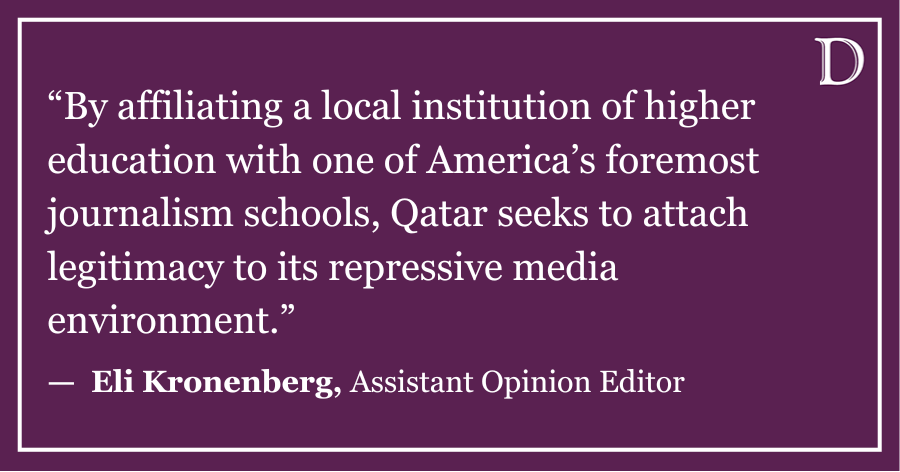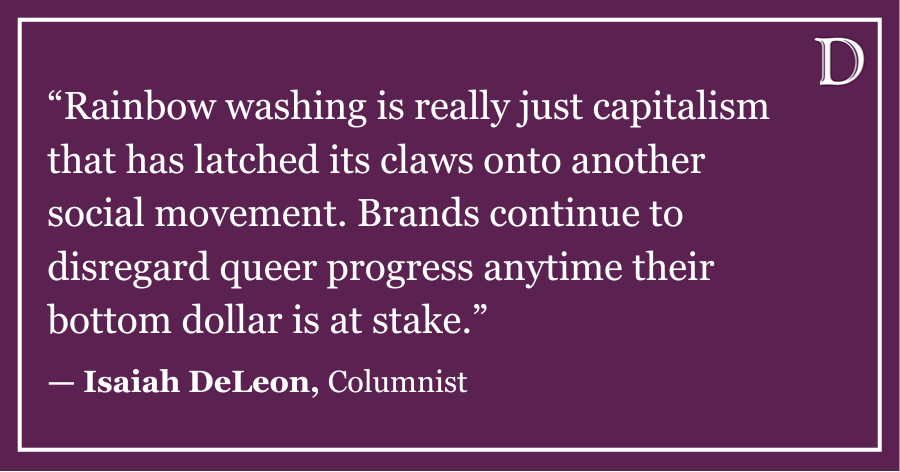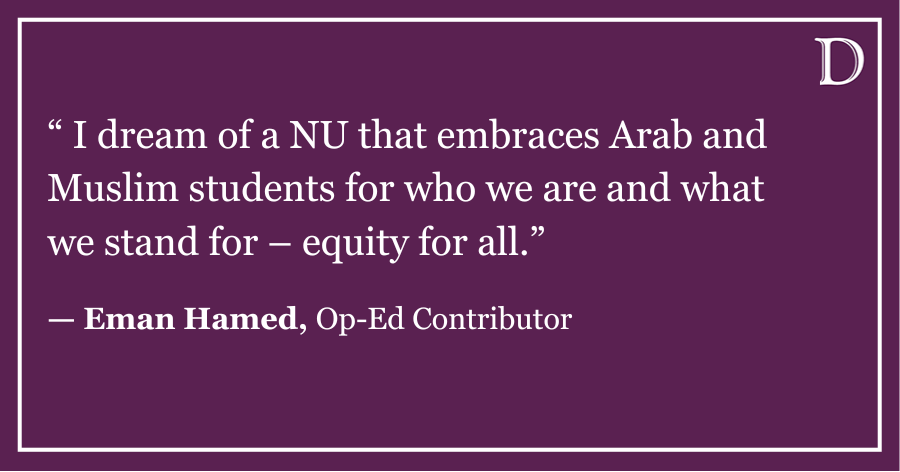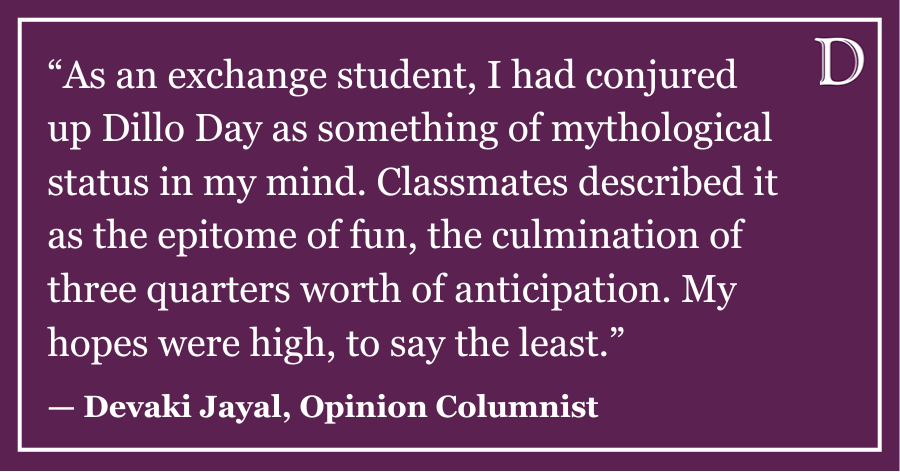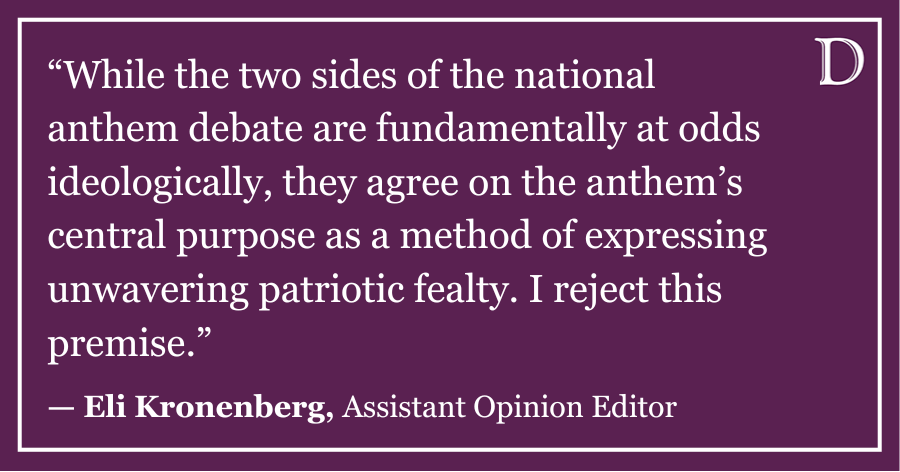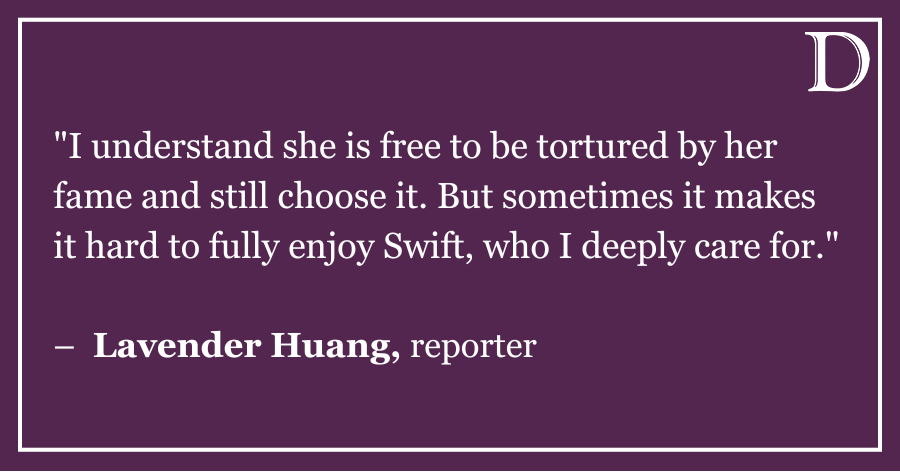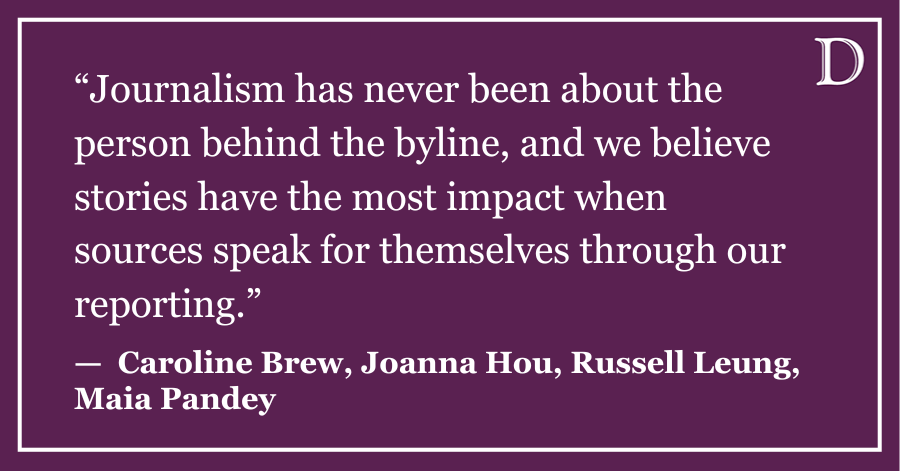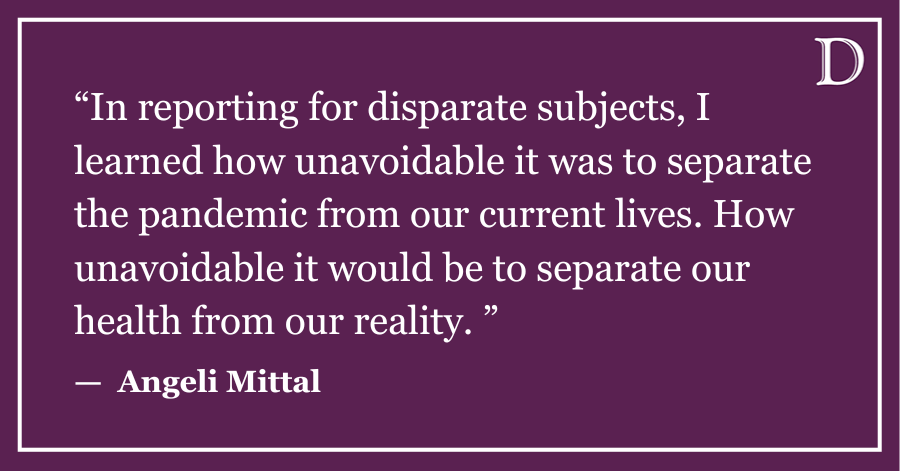Content warning: This article contains mention of war, sexual assault and death.
Like the long list of colleges that have had similar encampments, the encampment on Deering Meadow brought with it a surge of antisemitism.
One protester wore a sweatshirt depicting Abu Obeida, the spokesperson for the Al-Qassam Brigades, the military wing of the Palestinian terrorist group Hamas. A sign depicting a star of David with a red slash drawn through it was taped to the Meadow’s fence. Another poster portrayed Northwestern’s Jewish president, Michael Schill, as a horned devil, echoing a centuries-old antisemitic trope. Jewish students reported being targeted, yelled at, and in at least one case, physically assaulted.
These instances of hatred do not make the encampment itself antisemitic but are emblematic of a larger problem within the protest’s ideology and rhetoric.
As both a history major with a passion for global affairs and a Jewish NU student with Israeli family members and friends, I felt compelled to go to the encampment to try to understand it for myself. I spoke to several protesters, and almost all of them appeared to hope for a solution to the conflict — something we had in common.
I posed the same question to each protester. If their movement opposed antisemitism, then why did such glaringly hateful acts follow the encampments at almost any university they appeared at?
Each time, the protester deflected — antisemitic acts had been committed by “community members,” not by students, one claimed. Another argued that a “few bad apples” did not undermine the overall message. Another pointed to the presence of anti-Zionist Jewish protesters — who represent an extreme minority of Jews — as if this did anything to undermine claims of antisemitism.
I do understand their answers. I wholeheartedly believe a majority of the protesters in the encampment are not antisemitic.
But these arguments miss the point. There is a reason why antisemitism follows this movement everywhere it goes: leaders and encampment organizers propagate rhetoric that invites extremism, support for terrorism and antisemitism.
Within 24 hours of the Oct. 7 attack, in which Hamas and several other terrorist groups killed more than 1,200 people — including men, women, children and the elderly — and kidnapped hundreds, torturing, raping and burning innocent people alive, student organizers at NU had posted statements justifying the acts as a form of “resistance.”
While the bodies of innocent Israelis were still warm, NU Students for Justice in Palestine, a group that later led the Deering encampment, argued that Israelis affected by the Oct. 7 attack could not claim victimhood due to a history of Palestinian oppression. The group called the attack — which, I remind you, included the rape and slaughter of Israelis the same age as NU students and the murder of children in their homes — an act of “resistance” and a “testament to the indomitable human spirit.”
This kind of rhetoric is not revolutionary, or sophisticated, or even persuasive to most rational people. It is disgusting, antisemitic, dehumanizing and, most concerningly, intellectual garbage.
What I noticed most keenly when I spoke to protesters was their simplistic framing of
the conflict. One side, the Palestinian side, was inherently good by virtue of their oppression.
The other, the Israeli side, was inherently bad by virtue of their comparative power — and therefore unable to claim victimhood for any atrocity they experienced, no matter how cruel.
This ideology employs a black-and-white dichotomy of “oppressor” and “oppressed,” “white” and “nonwhite” (despite the obvious irony that Israel is a majority non-white country) to swallow up all the conflict’s complexities and to reframe it as a battle of an entire nation of good versus an entire nation of evil.
This oversimplified paradigm, which utilizes a significant amount of revisionist history and a number of loaded buzzwords, is what allowed antisemitism to emanate from encampments nationwide.
If you participated in these protests, consider this: I am a Jewish student, and I am close to the Jewish community that has felt uncomfortable on campus these last few months.
I want peace. And everyone in that community that I have spoken to wants a ceasefire, the release of the hostages and an end to this war; a solution that affords dignity, self-determination and equal rights to Jews, Muslims, Israelis and Palestinians alike.
Yet there is a real reason we feel alienated by your movement. Trust us, please, that we are rational, intelligent NU students and young people with hearts and minds just like you, and not bloodthirsty “genocide supporters,” “colonizers” or “oppressors.”
We could be your partners as advocates for peace in the Middle East. Instead, you chant “we don’t want no Zionists here,” treating us as if we are personally representatives of the Israel Defense Forces and demonizing us simply for our belief — which an overwhelming majority of Jews worldwide share — that Jews have a right to live in peace in their indigenous homeland, just as Palestinians do.
The national encampment movement, despite the beliefs of many misguided and
good-hearted people in it, was and is not a movement for peace.
A true peace movement would demand hostages’ return as well as a ceasefire and an end to Palestinian suffering. These goals, and the goal of peace itself, do not align with the goals of Hamas terrorists, or the Islamic Republic of Iran, or the Houthis. If this movement were the movement that currently exists, then these encampments would not have been celebrated and praised by the Ayatollah Ali Khamenei and his terrorist proxies as they have been in recent months.
The most concerning aspect of the encampment was not the antisemitism that came with it, though that was deeply troubling. It was that at such a prestigious and elite university, the protest fell short of embracing complexity, discourse and intellectual thought — and ultimately failed to advocate for peace.
The kind of movement I imagine, one that humanizes both Israelis and Palestinians, might have seen both Israeli and Palestinian flags flying, because as any NU student should know, innocent people, no matter their ethnicity, religion or nationality, are not their governments, and they do not deserve to be dehumanized, kidnapped, raped, murdered, starved or driven from their homes because of their government’s actions.
This kind of movement, moreover, might actually have something to say about other important regional actors, like Saudi Arabia, Egypt, Qatar, and Iran, who would have essential roles in any possible solution.
This kind of movement, I believe, would have seen the participation of a much larger community of Jewish students — and no, I do not mean the “anti-Zionist” Jewish students that we have asserted again and again do not represent us. I mean Jewish students who have deep compassion for others and want to be part of a broader solution to this conflict. I mean Jewish students who want peace in the region for both Israelis and Palestinians and believe that it can be accomplished without the wildly unrealistic goal of erasing the world’s only Jewish state. I mean me.
Clarification: This story has been updated to better characterize the death toll on Oct. 7.
Jake Lubin is a Weinberg sophomore. He can be contacted at [email protected]. If you would like to respond publicly to this op-ed, send a Letter to the Editor to [email protected]. The views expressed in this piece do not necessarily reflect the views of all staff members of The Daily Northwestern.











